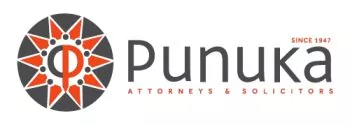Introduction
The best time to invest in Nigeria is now, some "motivational speakers" would say. I have also read that foreign investors have not moved into Africa as quickly as expected because of some of the risks associated with the continent. Guess the intelligent response to the valid concerns regarding the risks- "risks and profits are inseparable twins and high-risk ventures are frequently associated with higher profits"1.
To be honest, this is not far from the truth. However, one risk we must address is how should foreign investors avoid the "bribery card" before they make an investment in Nigeria.
The Bribery Card:
What is the bribery card? The concept of "the bribery card" is simply where a local government official receives some form of "secret" payment from an investor to facilitate an agreement with the government. After foreign direct investments are made, and perhaps, government changes and the new local government officials have a dispute with the investor, the parties proceed to resolve the dispute via arbitration or court as the case maybe. Guess what happens next? The local country raises concerns regarding "secret payments" made to facilitate the agreement and therefore decide to challenge the root of the agreement on grounds of bribery and fraud. That is what I've termed as the bribery card.
The components of a claim for bribery are simple- i) that a secret payment or other inducement has been made to an agent which gives rise to a realistic prospect of a conflict between the agent's personal interest and that of his principal; and ii) the recipient of the bribe (or the person at whose order the bribe is made) must be someone with a role in the decision-making process in relation to the transaction in question. The payment need not be linked to a particular transaction between the payer of the bribe and the principal. The agent and the payer of the secret commission are jointly and severally liable not only to account to the principal for the amount of the bribe but must also account for damages for fraud for any loss suffered by the principal2. A foreign investor in Nigeria3 encountered the bribery card when the country argued that the government officials were influenced with secret payments to take actions against the country and the Court upheld the argument.
Another foreign investor encountered the bribery card in Republic of Mozambique4 and all attempts to ensure the proceedings were stayed pending the outcome of the arbitration which would determine the substantive issues proved abortive.
Conclusion
What should rational businesspeople contemplate when investing in Nigeria? They must understand that no payment is "secret" and where you cannot justify the said payment, you should be prepared to address the bribery card when it is eventually thrown at you in Court.
Footnotes
1. Investing in Africa is sound business and a sustainable corporate strategy | Africa Renewal accessed on April 2, 2024
2. Novoship (UK) Ltd v Mikhaylyuk (2012) EWHC 3586 paras 104-111 per Christoper Clarke J (his judgment was later overturned on a different point)
3. The Federal Republic of Nigeria v Process & Industrial Developments Ltd (2023) EWHC 2638
4. Republic of Mozambique (acting through its Attorney General) v Prinvest Shipbuilding SAL (Holding) & Ors (2023) UKSC 32
The content of this article is intended to provide a general guide to the subject matter. Specialist advice should be sought about your specific circumstances.

